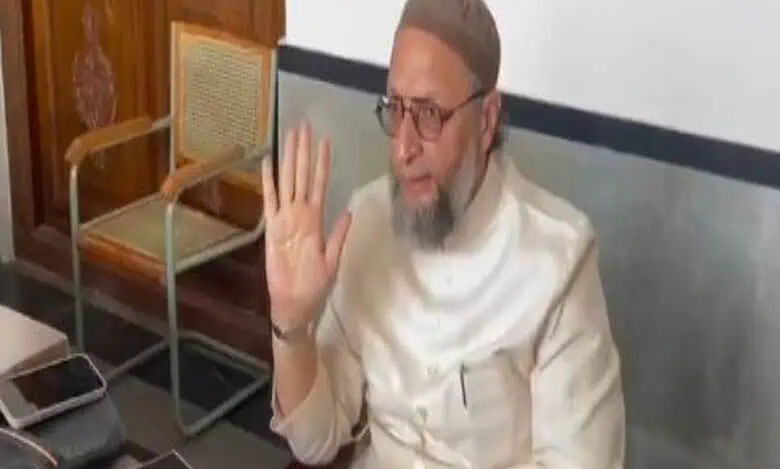
Table of Contents
ToggleOwaisi Criticizes Waqf Board Amendment
Owaisi Condemns Waqf Board Amendment Bill
Asaduddin Owaisi, president of the All India Majlis-e-Ittehadul Muslimeen (AIMIM), has voiced strong opposition to the recently proposed Waqf Board Amendment Bill. On November 2, Owaisi asserted that the bill, which mandates the inclusion of non-Muslim members in Waqf Board committees, contradicts Article 26 of the Indian Constitution. According to Owaisi, the amendment infringes on the constitutional rights of the Muslim community to manage its religious affairs independently. He emphasized the need for boards managing religious endowments to reflect the community they serve, questioning the logic behind the amendment, especially given that Hindu endowment boards such as the Tirumala Tirupati Devasthanam (TTD) do not include non-Hindu members.
Context of the Waqf Board Amendment Bill
The Waqf Board Amendment Bill proposes changes that would require the Central Waqf Council to include two non-Muslim members, a move that could potentially increase non-Muslim representation on Waqf Boards up to 12 members. The central government states that this amendment aims to enhance governance and accountability within Waqf Boards. However, Owaisi has expressed concern, stating that these changes undermine the autonomy of the Waqf Board and disrupt the traditional structure that allows Muslims to manage their religious assets and properties.
The AIMIM leader argued that Hindu religious boards, including those in Telangana, Andhra Pradesh, Odisha, and Tamil Nadu, are not subject to similar requirements. “Owaisi on Waqf Board Amendment” highlights his concern that the amendment singles out Waqf Boards and poses a threat to the principle of parity among religious boards.
Reaction to Tirumala Tirupati Devasthanam (TTD) Board Appointments
Owaisi’s criticism of the Waqf Board Amendment Bill follows recent developments at the TTD. BR Naidu, the new chairman of the TTD board, announced on October 31 that all employees at the Tirumala temple should be Hindus. Naidu indicated that he would consult with the Andhra Pradesh government on potential measures, including relocating non-Hindu employees to other departments or offering voluntary retirement.
Owaisi pointed out that the TTD board explicitly requires all members to practice Hinduism, with Section 96 of the TTD Act specifying that appointed members should follow the Hindu faith. This stipulation aligns with Article 26 of the Indian Constitution, which guarantees the freedom to manage religious institutions. However, Owaisi argues that the Waqf Board Amendment Bill’s requirements are inconsistent with this constitutional right.
Questioning the Inclusion of Non-Muslims on Waqf Boards
Owaisi raised concerns regarding the inclusion of non-Muslims on Waqf Boards, which he views as a deviation from the traditional setup. The proposed changes, he argues, challenge the community’s ability to exercise control over its religious assets. He asked, “Why is there a proposal to have non-Muslim members in the Waqf Board when there is no non-Muslim member on the TTD or any other Hindu endowment board?” According to Owaisi, this inconsistency reflects a lack of parity across religious boards, with Waqf Boards being treated differently under the new amendment. His remarks underscore his belief that the autonomy to manage Waqf assets should remain exclusively with the Muslim community.
Owaisi has repeatedly criticized the bill as a breach of constitutional rights, and “Owaisi on Waqf Board Amendment” serves to capture his standpoint on the potential legal and social implications of such measures.
The Broader Constitutional Implications
Owaisi believes that mandating non-Muslim representation in Waqf Boards is a violation of Article 26, which grants all religious denominations the freedom to manage their own religious affairs. He pointed out that Article 25, which defines Hinduism as inclusive of Hindus, Sikhs, Buddhists, and Jains, does not impact the management of Hindu temples, which remain exclusively under Hindu administration. Similarly, he contends that Waqf Boards should continue to be managed by Muslims, in line with constitutional protections.
Owaisi further criticized the amendment’s provision for appointing a non-Muslim CEO and granting extended control to district collectors. He argued that these positions, if held by non-Muslims, could negatively impact the functioning of Waqf Boards over the next five years.
Implications of Owaisi’s Stand on the Waqf Board Amendment
Owaisi’s response to the Waqf Board Amendment reflects a deep-seated concern for preserving the independence of religious institutions. By highlighting differences in how Hindu and Muslim religious boards are treated, Owaisi underscores the importance of consistency in governance standards for religious bodies. His stance on “Owaisi on Waqf Board Amendment” raises questions about the legal and social ramifications of the proposed bill.
In conclusion, Owaisi has called on the government to reconsider the Waqf Board Amendment Bill and align it with the constitutional values of religious freedom and non-discrimination. His critique is based on the belief that religious boards should be able to self-govern, with structures that respect the unique needs and traditions of their communities.
Disclaimer: This article reflects publicly reported statements and opinions expressed by Asaduddin Owaisi on the Waqf Board Amendment Bill. Readers are encouraged to consult official sources for further information.


